URSULA BIEMANN
SCREENING
Swiss artist, theorist and curator Ursula Biemann explodes preconceptions of gender and identity in peripheral and border areas. Performing the Border (1999) is a video essay set in the Mexican-US border town Ciudad Juarez, examining the lives and communities of women working in US production plants. The impact of industrialisation and digitisation on women’s bodies is further explored in Writing Desire (2000). Remote Sensing (2001) takes a look at the global sex trade, a key theme in Biemann’s work. Another recurring theme is the smuggling of goods and people across national borders; the European-African border is examined in Europlex (2003). Black Sea Files (2005) circumvents the main narratives of oil-related industries in the Caucasus to examine the more personal stories. Sahara Chronicle explores the networks of mobility and migration across the Sahara, and X-Mission (2008) analyses the discourses that give spatial meaning to Palestinian refugee camps.
Works featured:
Performing the Border
1999, 45', colour and b&w, Spanish and English spoken, English subtitles.
Writing Desire
2000, 25', colour, English, Spanish and German spoken, English subtitles and running text.
Remote Sensing
2001, 53', colour, English and German spoken, English subtitles and running text.
Europlex
2003, 20', colour and b&w, Arabic and English spoken, English subtitles and running text.
The Black Sea Files
2005, 43', colour, English spoken, English running text/titles.
Sahara Chronicle: A Collection Of Videos On Mobility And The Politics Of Containment In The Sahara
2006-2007, 76', colour, French spoken, English subtitles and running text/titles.
X-Mission
2008, 35', colour, Arabic and English spoken, English subtitles.
Works featured:
Performing the Border
1999, 45', colour and b&w, Spanish and English spoken, English subtitles.
Writing Desire
2000, 25', colour, English, Spanish and German spoken, English subtitles and running text.
Remote Sensing
2001, 53', colour, English and German spoken, English subtitles and running text.
Europlex
2003, 20', colour and b&w, Arabic and English spoken, English subtitles and running text.
The Black Sea Files
2005, 43', colour, English spoken, English running text/titles.
Sahara Chronicle: A Collection Of Videos On Mobility And The Politics Of Containment In The Sahara
2006-2007, 76', colour, French spoken, English subtitles and running text/titles.
X-Mission
2008, 35', colour, Arabic and English spoken, English subtitles.
Related events
This event is part of ARTIST IN FOCUS - SCREENINGS
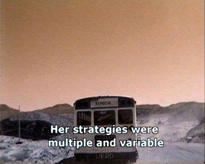

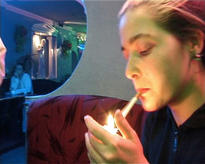
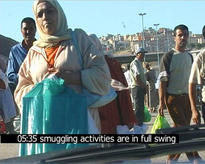
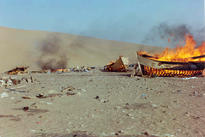
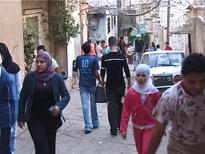
-
Thu 11.11.2010
12:00 - 19:00 -
Practical info
Argos
Werfstraat 13 rue du Chantier
1000 Brussels
info@argosarts.org
+32 2 229 00 03
Opening hours:
Thursday 11.11.2010, 12:00 - 19:00
Entrance Fee:
3 / 2 euros - Artists
- Works